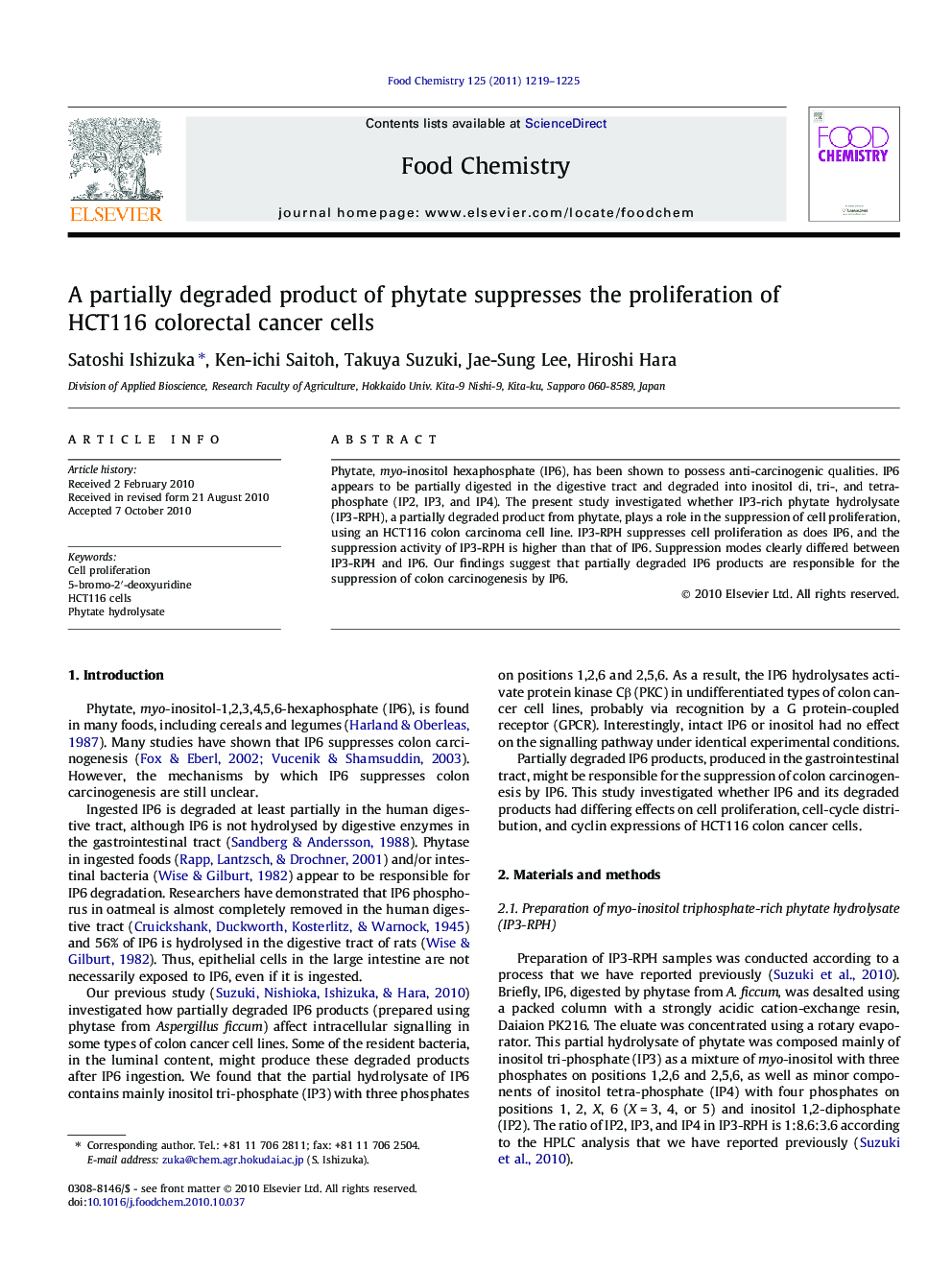| Article ID | Journal | Published Year | Pages | File Type |
|---|---|---|---|---|
| 1186474 | Food Chemistry | 2011 | 7 Pages |
Phytate, myo-inositol hexaphosphate (IP6), has been shown to possess anti-carcinogenic qualities. IP6 appears to be partially digested in the digestive tract and degraded into inositol di, tri-, and tetra-phosphate (IP2, IP3, and IP4). The present study investigated whether IP3-rich phytate hydrolysate (IP3-RPH), a partially degraded product from phytate, plays a role in the suppression of cell proliferation, using an HCT116 colon carcinoma cell line. IP3-RPH suppresses cell proliferation as does IP6, and the suppression activity of IP3-RPH is higher than that of IP6. Suppression modes clearly differed between IP3-RPH and IP6. Our findings suggest that partially degraded IP6 products are responsible for the suppression of colon carcinogenesis by IP6.
